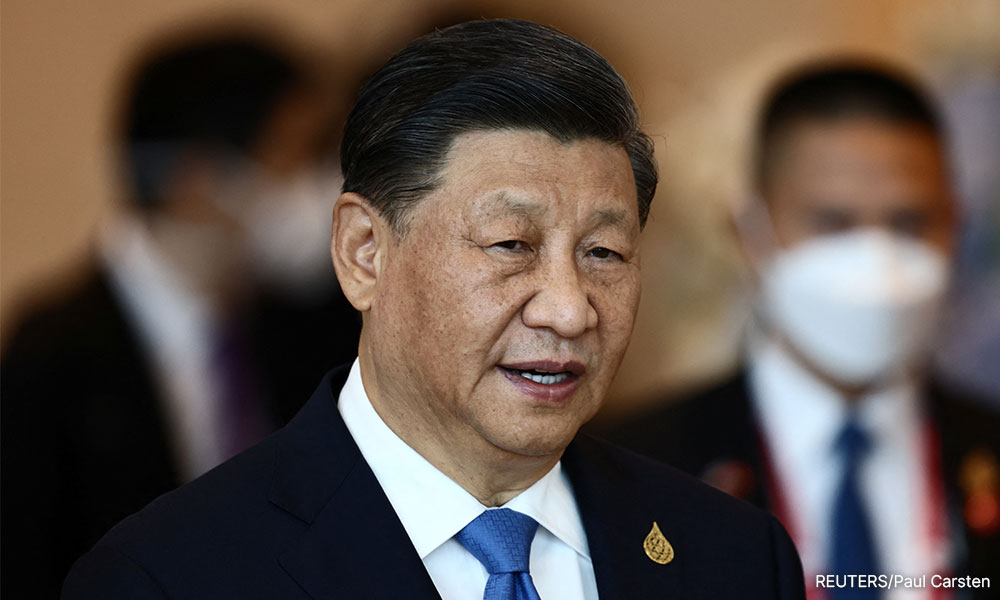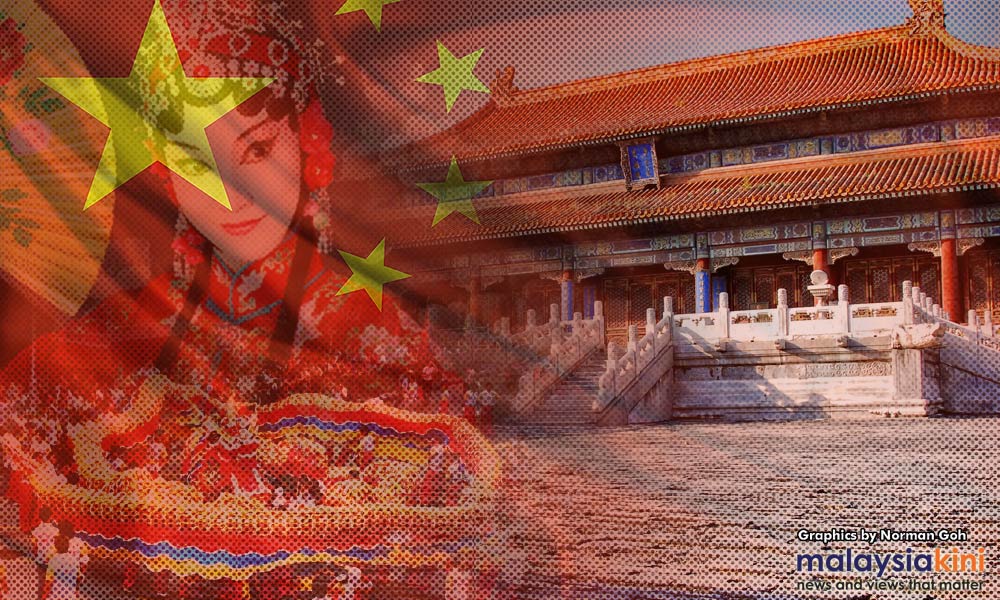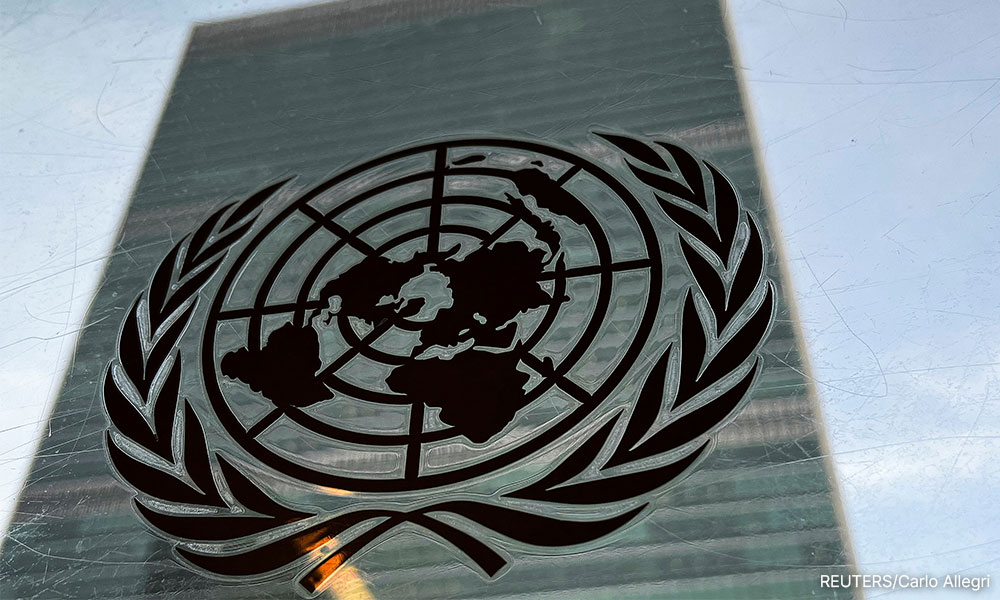These days, Malaysian friends celebrate Hari Raya Haji with relatives and friends.
Crowds are seen in shopping malls and busy streets.
However, regional security hot spots keep flaring up in other parts of the world, regional conflicts and disturbances are frequent, and various traditional and non-traditional security threats are intertwined.
These pose a significant challenge to each country’s development and regional stability.
Moreover, out of their own interests, certain countries are obsessed with unilateralism, hegemonism, and power politics, which cast a heavy shadow over the world order.
“Peace, like air and sunshine, is hardly noticeable. But none of us can live without it.”
‘Global Security Initiative’
In the face of a turbulent world, bearing in mind the shared well-being of humanity, President Xi Jinping proposed the Global Security Initiative (GSI) in his keynote speech delivered at the Boao Forum for Asia Annual Conference 2022.
The GSI is China’s prescription for addressing the global security deficit.
It chimes with the shared aspiration of the international community for peace, security, and development.
That’s why the GSI received positive responses worldwide once it was put forward.
Today, nearly 90 countries and international organisations have appreciated and supported the GSI.
The GSI has incorporated over 30 bilateral and multilateral documents on exchanges between China and relevant countries and organisations.
The appeal, influence, and ability to inspire the GSI have been enhanced.
Guideline
On the GSI’s first Anniversary, China officially released The Global Security Initiative Concept Paper, which provides a practical “guideline” for all parties to understand the contents of GSI better and chart the course for cooperation.
The paper clarifies the core concepts and principles of the GSI:
The vision of common, comprehensive, cooperative, and sustainable security provides conceptual guidance;
Respecting the sovereignty and territorial integrity of all countries is the basic premise;
Abiding by the purposes and principles of the UN Charter is a primary benchmark;
Taking the legitimate security concerns of all countries seriously is an important principle, peacefully resolving differences and disputes between countries through dialogue and consultation is a must choice; and,
Maintaining security in both traditional and non-traditional domains is an inherent requirement.
These six commitments are interlinked, mutually reinforcing, and are an organic whole of dialectical unity, which will be a correct and effective guidance for reforming the global security governance system.
It will resolve the security dilemma faced by humanity and advance the building of a community with a shared future for humankind.
Priorities
The Concept Paper lays out 20 priorities and five platforms and mechanisms of cooperation, all highly action-oriented:
We need to uphold the UN’s central role in security governance and jointly practice genuine multilateralism;
We need to promote coordination and sound interactions among major countries, seek common ground while reserving differences, and manage disputes;
We need to stick to the overall direction of promoting peace talks, facilitate the peaceful settlement of hotspot issues through dialogue;
We need to take a coordinated approach to address traditional and non-traditional security threats, jointly improve the global security governance system and capacity building; and,
We need to balance development and security and enhance sustainable security through sustainable development.
China is not only the initiator of GSI but also an active force in implementing this initiative.
At present, China remains the largest troop contributor to peacekeeping operations among the five permanent members of the UN Security Council.
It is also the only country in the world that undertakes to follow a path of peaceful development in its constitution and the only one among the five nuclear-weapon states that have pledged “no first use” of nuclear weapons.
As for international and regional issues, China has proposed a four-point proposal on the settlement of the Palestinian question and a five-point initiative on achieving security and stability in the Middle East.
As the full escalation of the Ukraine crisis reaches its one-year mark, China released the “China’s Position on the Political Settlement of the Ukraine Crisis”, providing a comprehensive, systematic, and feasible approach to settling the Ukraine crisis.
With the concerted efforts of all parties concerned, Saudi Arabia and Iran held talks in Beijing.
Both sides agreed to resume diplomatic relations.
This milestone event once again shows China’s responsibility.
Asia-Pacific century
The 21st century is the Asia-Pacific century.
The Asia-Pacific region is growing to be the anchor for world peace, the powerhouse for global growth, and the new pacesetter for international cooperation.
The peace and stability of Asia-Pacific don’t come easily and should be all the more cherished.
An ancient Chinese philosopher observed: “Stability brings a country prosperity while instability leads a country to poverty.”
Security is the precondition for development. Without peace, growth, and prosperity are out of the question, like water without a source and a tree without roots.
China will work with Malaysia and other countries in the region to jointly put forward and implement the GSI and address various traditional and non-traditional security threats to safeguard the peace and stability of the region and the world. - Mkini
OUYANG YUJING is the Ambassador Extraordinary and Plenipotentiary of China to Malaysia.
The views expressed here are those of the author/contributor and do not necessarily represent the views of MMKtT.




No comments:
Post a Comment
Note: Only a member of this blog may post a comment.